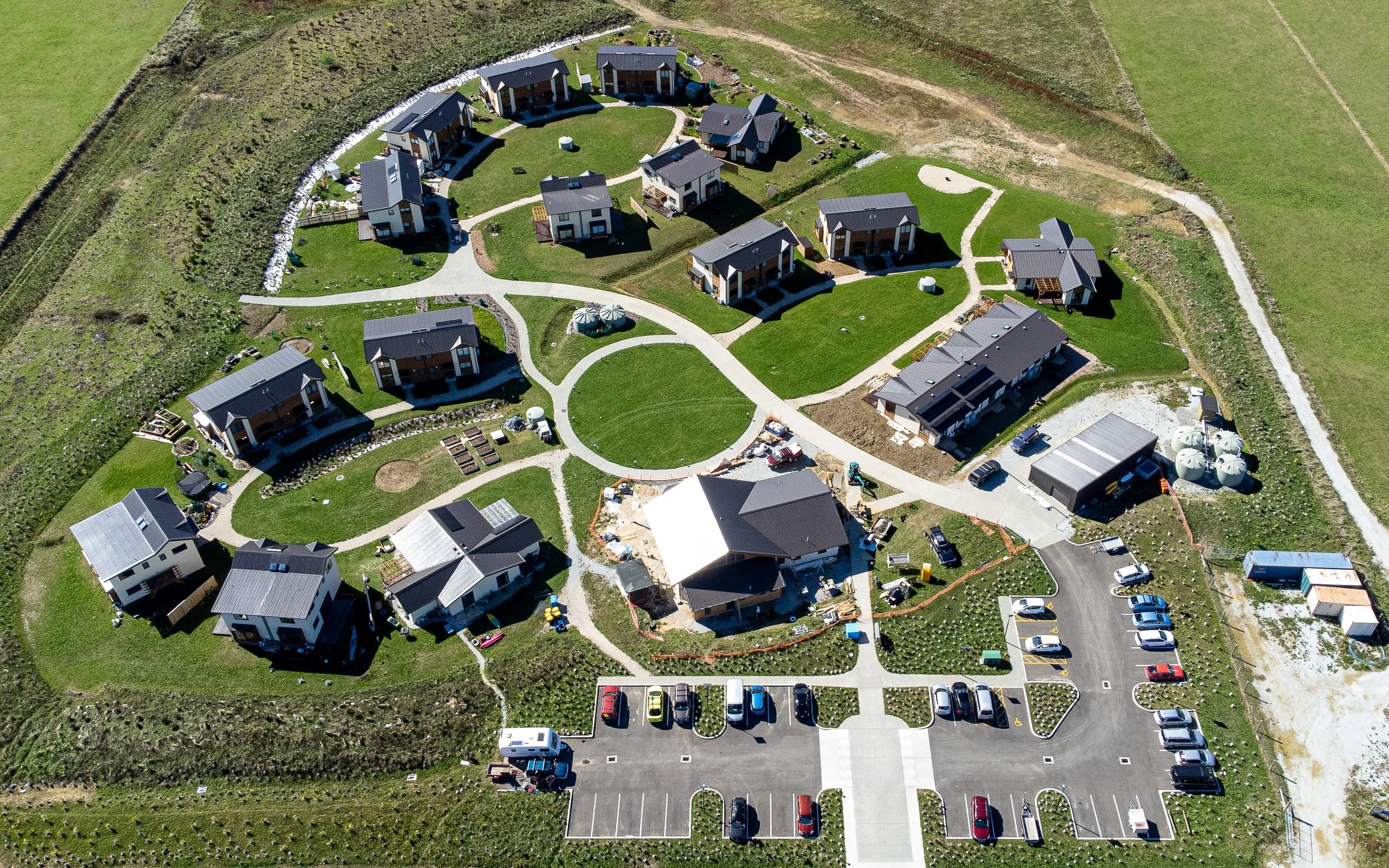Takaka Cohousing







Takaka Cohousing are creating a neighbourhood that's built on shared values with an established culture of trust, respect, care and joy. Where kids can play outside with their friends while adults connect more deeply and help each other. This multigenerational support and intergenerational reciprocity form the heart of our community, with couples, singles, families with children, and retirees from across the country and around the world.
“We’ve been told that we need to live in isolation, to have our own house away from others, to have our own land to be safe. What this has done has pushed us away from each other and led people to be disconnected from the whenua.”
Simone Kidner for The Spinoff
-
Tākaka
-
Forming and developing (Neighbourhood 1 of 3 is complete)
-
Jan 2020
-
Neighbourhood 1 was complete in 2023 and all other stages expected to be complete in 2027
-
CoHousing
-
In Neighbourhood 1: 54 Adults, 15 Children
-
In Neighbourhood 1: 34 homes
In Neighbourhood 2: 18 homes
In Neighbourhood 3: 18 homes
-
14 Ha (This includes the 3 neighbourhoods and the 7 Hectares owned by the Community Land Trust - Te Hapori Hauora)
-
Our development is managed by Mōhua Ventures, a charitable business owned by Te Hapori Hauora, a registered charitable trust.
-
Unit Title Body Corporate model with a Community Land Trust (charitable status) which owns land not occupied by residents or managed by the Body Corporate
-
Unit Title
-
Owner equity 30%, 70% Commercial Construction Loan with Kiwibank
-
Neighbourhood 1: 34 duplex homes.
Neighbourhoods 2 and 3: 18 duplex homes.
-
Neighbourhood 1: Common House, Storage shed, Workshop, Shared Gardens, Laundry
Neighbourhood 2 & 3: Common House, Storage shed, Workshop, Shared Gardens
-
Stage 1: $26 million (N1)
Stage 2: $36 million (N2 & N3)
-
Consensus, coloured cards model for decision making with a 75% final vote backup if consensus can’t be reached. Community currently exploring moving to Sociocracy.
-
Funding, change in housing market, covid, building supply issues, legal requirements to secure construction loan means high risk for residents. Huge increase in interest rates and cost of living from the start of the project to when first mortgages are being secured. No support for affordable housing or partner organizations available to support affordable housing.
-
Neighbourhood 1: Selling the last two houses after the housing market decreased. Financial pressures meaning the delayed building of the common house. Changes in residents and constant onboarding increasing pressure on the development team.
Neighbourhood 2: Building community in a shorter amount of time due to build timeline pressures; Neighbourhood 2 having its own identity, as a lot of the thinking has already been done by Neighbourhood 1.
-
Ensure absolutely all residents have sought independent legal advice before signing legal agreements. Start with a bigger contingency margin.
-
Item description
-
-

